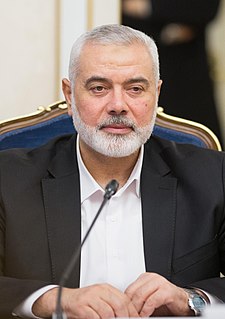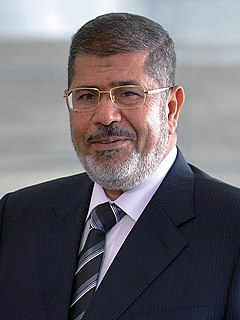A Quote by Andre Vltchek
Some socialist movements in Egypt, Tunisia and Bahrain, for instance, were genuine. I was making films about the so-called Arab Spring, and I'm well aware of how complex the situation really was. But it goes without saying is that the West immediately infiltrated and 'derailed' the revolutions, turning them into what you have described.
Related Quotes
The Arab awakening has been, up to now, a lot about freedom from dictatorial regimes - Syria, Yemen, Libya, Tunisia, Bahrain and Egypt. But once you got freedom from, then you need freedom to. Freedom from is about destroying things. Freedom to is about constructing things, constructing the rule of law.
If you look at the list of the top wheat importers for 2010, almost half of them are Middle Eastern regimes: Egypt, Algeria, Iraq, Morocco, Yemen, Saudi Arabia, Libya, and Tunisia. Egypt is the number-one importer of wheat in the entire world. Tunisia leads the entire world in per capita wheat consumption. So it's no wonder that the revolutions began with Tunisians waving baguettes in the streets and Egyptians wearing helmets made of bread.
I think no country is going to be immune from the Arab awakening because the Arab awakening is driven by deep human longing for dignity, for justice and for freedom. I think that applies to young people in Saudi Arabia as much as to young people in Egypt, Tunisia, or Yemen, or Libya, or Syria. If I were in Saudi Arabia, I would be getting ahead of this and looking for ways to appreciate those aspirations and align my country with them.
What is irreversible in the Arab world is this intellectual revolution, the awakening that we can get rid of dictators. That is here, and the people have this sentiment and this political power. They feel that they can do it, and it's still there. At the same time, we don't know what is going to happen. So to be very quick by saying, "Oh, revolutions and Arab Spring," and - you know, what I'm advocating is to take a cautious optimism as the starting point of our analysis and to look at what is happening.
The Arab spring reminds me a bit of the decolonisation process where one country gets independence and everybody else wants it. How about us, when do we get it, when do we make our move? And you have a situation where someone has been in power for decades, where the integrity of elections, democracy and security have really not been debated or discussed and most people suspect that elections are rigged and that the democratic rotation that elections are supposed to ensure doesn't really happen. And when this goes on for a while you are sitting on a powder keg.




































